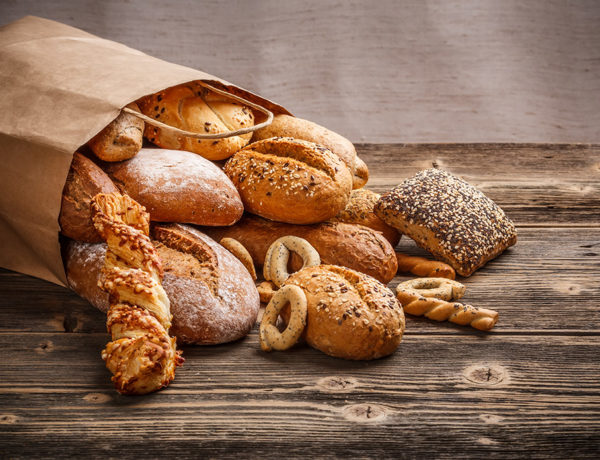- What is Cholesterol?
Cholesterol is a steroidal alcohol, 80% of which is produced by the body: the liver, intestines, adrenals, and gonads. The remaining 20% is provided by food. A diet rich in cholesterol leads to a reduction of cholesterol produced by the body and vice versa.
- HDL – LDL – Triglycerides
HDL Lipoproteins transport cholesterol and triglycerides from the arteries to the liver where they are eliminated. Commonly called “good cholesterol”. LDH Lipoproteins transport cholesterol and triglycerides from the liver to the arteries. Commonly called “bad cholesterol”. Triglycerides are derived from fatty acids (saturated and unsaturated). High triglyceride levels correspond to the consumption of carbohydrates and starches = weight gain!
- Properties of Cholesterol
Cholesterol is essential for protecting the fluidity and permeability of cell membranes, so that they remain watertight. It is essential for cells to communicate with each other. Cholesterol is present in every cell, every tissue, and every organ and repairs scars. It is a precursor of vitamin D. Cholesterol is also a precursor of steroid hormones: sex hormones (progesterone, estrogen, testosterone), but also adrenal hormones (cortisol, DHEA, aldosterone) and bile salts which are absolutely necessary to digest fat. Cholesterol is an antioxidant, 20% of the myelin (white substance of the spinal cord and brain) is made of cholesterol and 25% of the total cholesterol is used by the brain: memory, mood and cognition. Finally, cholesterol is anti-inflammatory.
- What happens if we are deficient in cholesterol?
We can be subject to diabetes, cardiovascular, mental and autoimmune diseases. The risk of obesity increases as well as osteoarthritis, muscle fatigue, blood pressure and therefore also cancer. It can also cause chronic pain, a weak immune system and gallbladder problems. Finally, hormonal imbalances can be encountered… and much more!
- Foods rich in Cholesterol
First of all, Caviar is the richest source, cod liver oil is an excellent source of cholesterol. Also, egg yolks, butter or fish and shellfish from cold seas: salmon, sardines, mackerel, shrimp, crabs, lobster. As for meat, it is found in pork fat, beef, goose, duck, bacon, butter, clarified butter (ghee) and offal: liver, kidneys, tongue, brain, sweetbreads.
- Why do cholesterol levels change?
Cholesterol levels change with the seasons, after surgery/dental surgery, when you have an infection, when you are stressed, as you age. Cholesterol is a healing agent that is sent to you when you need it. It is best not to interfere with this process.
When cholesterol rises, the real question to ask is why?
Certain herbal treatments, red yeast rice, dietary changes, vitamins can reduce cholesterol – Why? Because they help the body to eliminate devastating agents from the body such as free radicals, bacteria, heavy metals, toxins, etc.
- What about Atherosclerosis?
Atherosclerosis is an inflammatory disease. Inflammation begins with an injury to the blood vessel created by either viruses, parasites, free radicals, bacteria, allergens, hydrogenated oils, glucose sugar, tobacco, alcohol, intense stress, etc. The injected cells invite the white blood cells to come and destroy and clean the invaders present in the arteries. When the vessel is cleaned, the inflammatory process stops, leaving the cells to repair themselves. This is a normal process. In atherosclerosis this inflammatory process never stops (until the invaders are removed), so the wound never heals, and a deposit called plaque develops over the wound. Arterial plaques are composed primarily of calcium, fibrous repair tissue, enlarged white blood cells filled with debris, unsaturated fats (74%), and damaged and oxidized saturated fats. Plaques are comparable to an accumulation of pus under an infected wound. Eventually the crust of the plaque breaks off, and all these deposits float in the arteries like lava in a volcano. The blood coagulates, causing thrombosis, and the arteries become blocked = Heart attack or stroke.
- Conclusion
If cholesterol levels are rising, the real question is why?
Inflammation must be avoided at all costs:
Eliminate all trans fats, hydrogenated oils, sugars, corn syrup, processed foods, allergenic foods (soy, dairy, gluten, alcohol…). Reduce exposure to chemicals: cosmetics, household products, chlorine, fluoride, unnecessary medications, heavy metals, etc. Also, manage stress, stop smoking, stop drugs, reduce sugar consumption. It is necessary to treat underlying infections (dental, virus, bacteria, candida…) and repair the intestinal wall if it is porous and rebalance the intestinal flora. We will think of rebalancing the hormones (sexual and adrenal), eating saturated fats (butter, cream, goose, duck, pork) and foods rich in cholesterol. Above all, exercise and sunbathe!
The consumption of non-oxidized saturated animal fats and the cholesterol level have nothing to do with cardiovascular diseases. It is the inflammatory process due to the above mentioned reasons that causes it.









No Comments